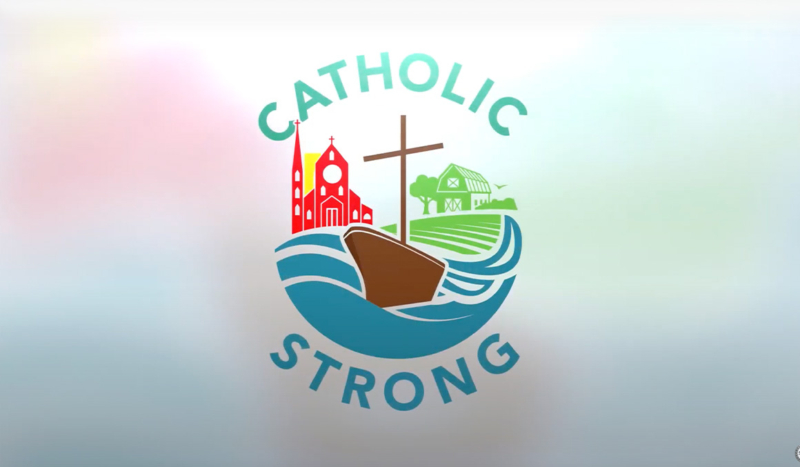
Diocese of Camden video screengrab / YouTube
CV NEWS FEED // The Diocese of Camden, New Jersey, has concluded its “Catholic Strong” campaign, a transformative initiative launched by Bishop Dennis J. Sullivan in 2018 aimed at revitalizing the Catholic community in South Jersey.
Over the course of the six-year campaign, nearly $35 million was raised, and an additional $4.8 million in pledges is still outstanding as the Dec. 31 payment deadline approaches, Catholic Star Herald reported.
Bishop Sullivan initiated the campaign to energize the faithful and address critical needs within parishes and diocesan programs. Initiatives the campaign supported have included evangelization efforts, capital improvements, and debt reduction.
A key goal of the campaign was to ensure that funds would primarily benefit local parish communities. Seventy percent was returned to parishes for local projects.
“Thanks to the generosity of our faithful Catholics and the leadership of our pastors, [Catholic Strong] was very successful,” Bishop Sullivan said. “As I visit parishes around the Diocese, I see the results of the campaign, such as improved maintenance of properties and new pastoral programs.”
Father Robert Hughes, vicar general and moderator of the curia, emphasized the necessity of the campaign, noting it had been nearly 30 years since the Diocese undertook a capital campaign.
“The major success of Catholic Strong was felt where we expected — in the parishes,” he said. “Parishes were able to complete capital projects, and many have been able to establish new ministries with the available funding.”
Several parishes have undertaken notable projects through the campaign. For example, St. Andrew the Apostle Church in Gibbsboro enjoyed renovations that included refinished pews and upgraded sound and video systems. The historic St. Nicholas of Tolentine Church in Atlantic City also underwent significant restorations, preserving its architectural beauty.
The remaining 30% of funds from the campaign supported diocesan-wide projects, including events that fostered community engagement, such as the 2019 Convocation of Catholic Leaders and the 2023 Diocesan Eucharistic Congress.
The campaign also played a crucial role during COVID-19, enabling livestreaming of Masses and online mission programs that kept the faithful connected.
Joe DiFilippo, member of the Diocesan Finance Council, said that despite COVID-19, clergy sexual abuse, and bankruptcy restructuring occurring during the fundraising years, the campaign was a great success.
“The faithful in our Diocese responded extremely well. I experienced this firsthand in my own parish,” he said. “Parishioners would tell me they prayed over what they gave, and often their gift was larger than expected. Sacrifices were made in many of those cases.”
According to DiFilippo, the initiative’s success was largely attributed to the fact that parishioners’ contributions remained within their own parishes, allowing them to witness the results of their sacrifices.

